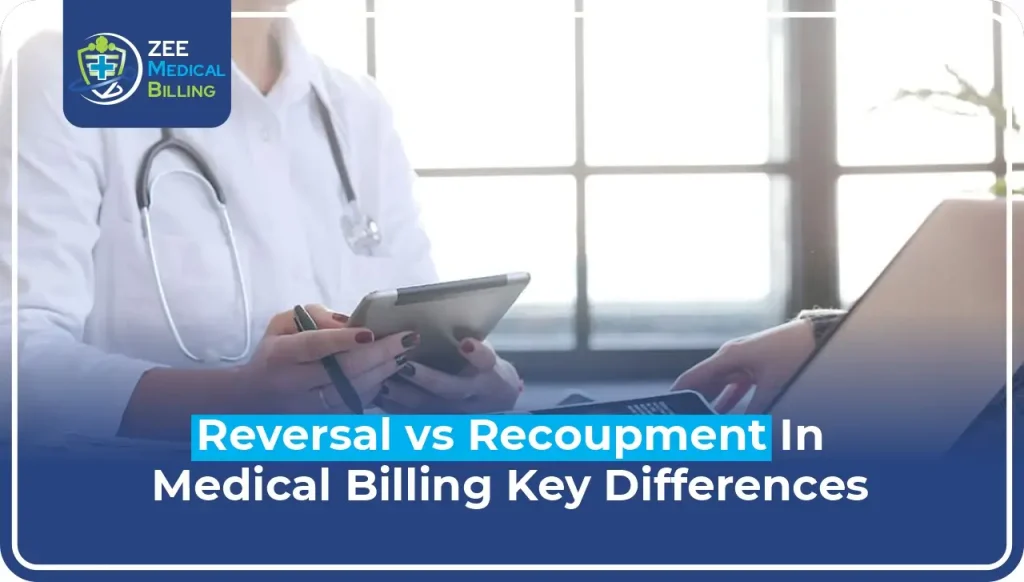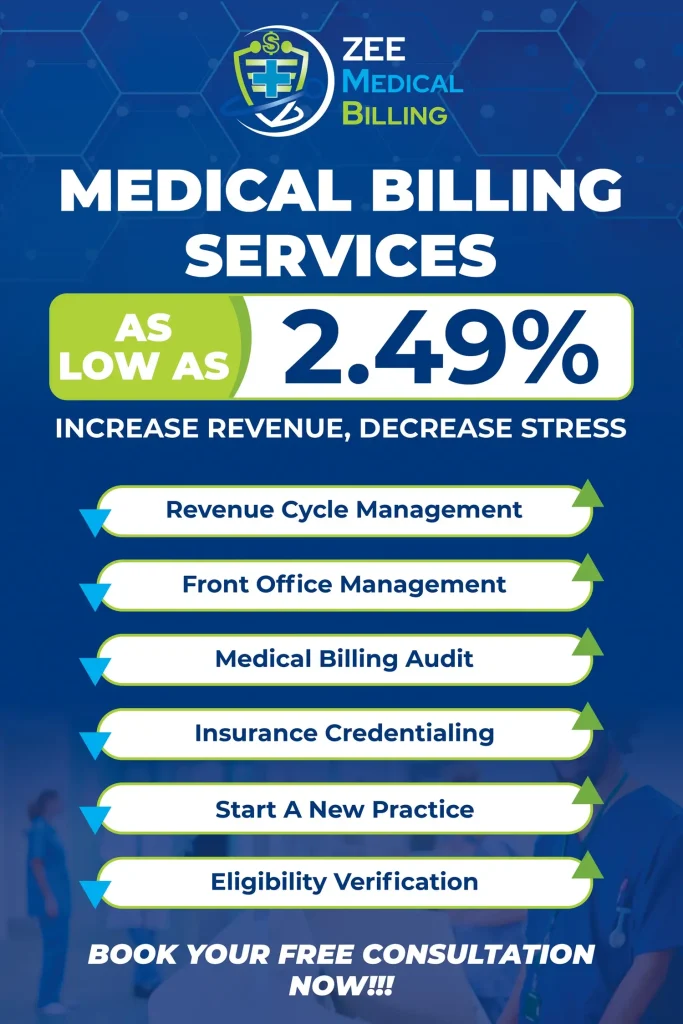Medical billing is full of complex terms, and reversal and recoupment are often confusing. While they may seem similar, they are fundamentally different processes that impact payments, reimbursements, and overall revenue cycles.
If you’re a healthcare provider, billing specialist, or even a patient dealing with insurance claims, it’s important to know the difference between reversal and recoupment in medical billing.
Let’s explore these concepts clearly and simply.
What is Recoupment in Medical Billing?
Recoupment in medical billing means when an insurance company takes back money it paid to a healthcare provider.
In simple terms, it’s like the insurance saying, “Oops, we overpaid you. We need that money back.”
Recoupment Definition
Recoupment refers to recovering funds that someone incorrectly paid out.
Meaning of Recoupment in Medical Billing
In medical billing, recoupment often happens due to:
- Billing errors
- Duplicate payments
- Services not covered by insurance
- Post-payment audits finding discrepancies
When recoupment occurs, the insurer may:
- Deduct the amount from future payments
- Request a refund from the provider
Understanding what is recoupment can help prevent costly mistakes.
Read More: Common Urgent Care Billing Mistakes and How to Avoid
What is Reversal in Medical Billing?
A reversal occurs when someone cancels a claim or payment before or right after processing.
Think of it as “undoing” a payment or claim transaction before you finalize it.
When Does Reversal Occur?
- Incorrect claim submissions
- Patient eligibility issues
- Provider errors
The main difference is that a reversal stops the claim early. In recoupment, the money has already moved and needs to be retrieved.
Key Differences Between Reversal and Recoupment
Here’s a clear breakdown:
| Aspect | Reversal | Recoupment |
| Timing | Before or during claim processing | After payment is made |
| Action | Stops payment or claim entirely | Recovers funds already paid |
| Common Cause | Submission mistakes | Overpayments or audits |
| Financial Impact | No fund movement if caught early | Requires refunds or payment offsets |
Knowing these differences can help providers handle claims properly and avoid financial risks.
Why Recoupment Happens?
Understanding recoupment meaning in medical billing is vital because it affects the cash flow of medical practices.
Common reasons include:
- Overpayment: Insurance mistakenly pays more than required.
- Duplicate Payment: The same service is billed and paid twice.
- Service Not Covered: Insurance discovers the treatment wasn’t under the plan.
- Incorrect Coding: Wrong billing codes lead to overpayments.
The payer may request a refund or adjust future claims, known as offset in medical billing.
What is Offset in Medical Billing?
Offset refers to deducting owed amounts from future claim payments. Instead of asking the provider to send money back, the insurer reduces future reimbursements.
For example, if a provider owes $500, the insurer might deduct that amount from the next claim payment.
What is Refunding in Medical Billing?
Many people wonder: what is refunding in medical billing?
A provider issues a refund when they find out they were overpaid. They then choose to send the extra money back to the insurer.
Refund vs Reimbursement
- Refund: Provider sends money back to the payer.
- Reimbursement: The payer compensates the provider for services rendered.
In simple terms:
- Refund: Money flows back to the insurer.
- Reimbursement: Money flows to the provider.
Reimbursement vs refund is an important concept to understand, especially when dealing with payment corrections.
What Does Recouped Mean?
When funds are “recouped,” it means the insurance company successfully recovered the overpaid amount from the provider.
It can happen through:
- Direct payment refunds
- Offsets against future claims
Read More: Overcoming Insurance Denials in Mental Health Billing
Equitable Recoupment in Healthcare
Equitable recoupment is a legal idea. It allows a provider to challenge a repayment demand. They can do this if they think the demand is unfair or breaks the rules.
Providers may argue that even with technical mistakes, their service was still valid and needed. They believe they should not return payments.
However, winning an equitable recoupment case is rare and requires strong documentation and legal support.
How Can Providers Avoid Recoupments and Reversals?
- Submit accurate claims: Double-check codes and patient eligibility.
- Stay updated: Follow payer rules and billing guidelines.
- Respond to audits quickly: Provide requested documents.
- Maintain good records: Documentation is your strongest defense.
Being proactive saves time, money, and a lot of stress.
FAQs
1. What is the difference between reversal and recoupment in medical billing?
A reversal cancels a claim or payment before completion, while a recoupment retrieves funds already paid out.
2. What does recoupment mean for providers?
It means returning overpaid funds to the insurer, either directly or through offsets.
3. How can I prevent recoupment?
Ensure accurate billing, verify patient coverage, and regularly audit internal processes.
4. What happens during a claim reversal?
The system cancels the claim and stops the payment before anyone disburses the funds.
5. Is recoupment the same as refunding?
Not exactly. Recoupment is payer-initiated recovery, while refunding is provider-initiated return of overpayments.
Conclusion
Understanding reversal vs. recoupment in medical billing is crucial for managing claims efficiently. While a reversal stops a mistake early, recoupment corrects errors after someone has paid the money.
Healthcare providers can reduce reversals and recoupments by submitting accurate claims. They should stay informed about insurance rules and keep clear records.
Mastering these concepts ensures smoother operations, faster reimbursements, and better financial health for your practice.
Stay smart, stay accurate — and you’ll avoid the costly pitfalls of medical billing errors.
Need Expert Medical Billing Services?
Zee Medical Billing provides professional billing solutions tailored to healthcare providers across the United States. In addition to offering top-tier support from our main office, we proudly serve clients in Illinois, Indiana, California, Kentucky, New York, Washington, Georgia, Alabama, South Carolina, Texas, Pennsylvania, Ohio, New Hampshire, Nevada, Massachusetts, Hawaii, Arizona, and Colorado! Whether you’re looking to streamline your revenue cycle or improve claims accuracy, you can reach out to us to learn more about how we can support your practice.


























